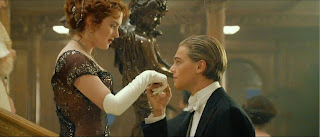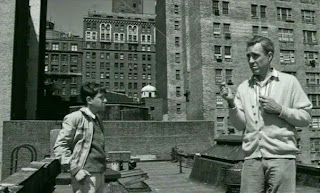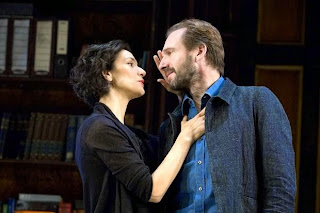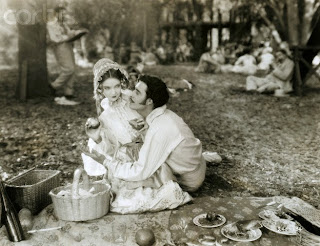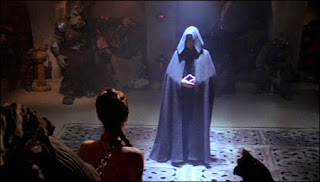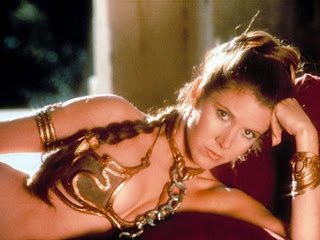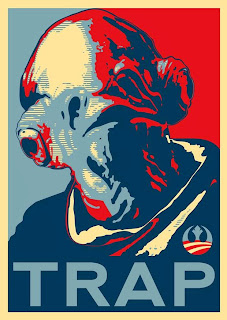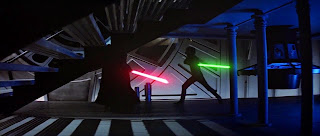
The Forbidden Hollywood series is a very interesting project curated by Turner Classic Movies, which spotlights mainstream American movies made prior to the big censorship clampdown of 1934. Before the Hays Office cleaned up Hollywood's act/spoiled everyone's fun (delete as applicable), there was a chance for criminals to triumph on screen, for men and women to climb in to bed together willy-nilly (pun intended), and for filmmakers to properly discuss social problems like poverty and political corruption. There were also a lot of bad, tawdry, cynical movies that substituted footage of women in their underwear for things like proper stories, so let's not overly romanticise the Pre-Code era.
This third volume is slightly more concerned with social issues than the first two, which mostly dealt with sex, spotlighting six films made by the fairly talented Hollywood director William Wellman, who made the first Best Picture winner, Wings, as well as one of the best and most politically-charged movies of the '40s, the anti-lynching drama The Ox-Bow Incident, a rare film that took a big subject during this censorious era, and didn't fudge the issue. Handily, the discs in this collection are split into double-bills: the two films on Disc 1 are rubbish, the coupling on Disc 2 are good, and the pair on Disc 3 are great. All the films look fantastic, even the ones that don't really deserve the sparkling restoration job, and there are also the usual strong extras in the shape of bonus shorts and a pair of documentaries about Wellman.
All in all it's a fascinating set, and well worth it if you're interested in old movies, film history, or indeed 20th century American history in general.
The films:

Other Men’s Women (1931) - A well-photographed but very tedious adultery melodrama, with Grant Withers turning from an annoying idiot into a nobly self-destructive grump after falling for the wife (Mary Astor) of his best mate (Regis Toomey), who wants him to spade her backyard.
The male leads are so bland they almost blend into the scenery, and the writers seem to be making it up as they go along, though the perma-horny Astor is quite good (she gave her best performance in Smart Woman the same year) - compensating for her early-talkie delivery with a subtle facial expressiveness - and there's a cool bit where Jimmy Cagney does a dance, he and Joan Blondell adding a bit of colour in support.
If I ever own a café, I will also erect a huge sign outside saying: "EATS". (1.5)
***

The Purchase Price (1932) - Barbara Stanwyck could act the pants off just about everyone in Hollywood, but she sure as hell couldn't sing. She kicks off this Pre-Code Wellman outing by murdering Take Me Away in cold blood, displaying a vocal range of about three notes.
Otherwise, her typically committed performance is the best thing about this mix of witless comedy and nonsensical drama, in which her nightclub singer hides out with an unsuspecting patsy; shades of the immortal Ball of Fire, only she's hiding from her boyfriend (Lyle Talbot), her host is a wheat farmer (George Brent), it's nothing like it, and it's rubbish. It's also very '30s - at one point Talbot says: "You daffy little tomato, I'm bugs about you", which is also very Looney Tunes.
There are a few nice shots right at the end, but it's a largely unenjoyable watch, and Brent's brutish, judgemental character most be about the most dislikeable goody this side of Birth of a Nation. Just watch Murnau's City Girl instead. (1.5)
***

*SPOILERS*
Frisco Jenny (1933) - After a couple of dreadful films, this is more like it: a Madame X variation starring Ruth Chatterton as a brothel madam whose son becomes a crusading DA.
It's disjointed and the ending doesn't quite do it for me, but Chatterton's good, there's a strong supporting cast - including the tragic James Murray, whose poignant piano solo is the highlight - and the story manages to encompass an earthquake, a doomed romance, two shootings, a birth, an adoption, an election campaign, a Prohibition-era police bust, a murder trial and a final shot that may have influenced Citizen Kane.
Not bad in 71 minutes. (3)
***

*A FEW SPOILERS*
Midnight Mary (1933) - Fierce, big-eyed Loretta Young is brutalised, falls in with gangsters and wears a hat like a Cornish pasty in this very watchable, strikingly-edited Pre-Coder.
There isn't a great deal of substance to the movie and its comic relief is awful, but it makes a solid point about poverty turning people to crime, has an appealingly straightforward approach to sex, and trusts its (stunning) visuals far more than most films.
Shot by journeyman James Van Trees, it's positively stuffed to the gills with unusual and original imagery, from fantasy neon signs proclaiming unemployment, to a corpse animatedly juddering against a forced door. And in terms of nailing both a character and a prevailing mood, the first shot of Young is about as good as they come - even if it doesn't make a tremendous amount of sense in retrospect.
Young herself, who soon developed a dislikeable sanctimoniousness in both her on-screen and off-screen personas, is really excellent here. Many have gone gooey about her gargantuan peepers and singular cheekbones, and she is extravagantly lit and kitted out, but it's more her believability and charisma that sells it. She's asked to carry the whole film, and she does it superbly. Well, at least until the ending, which is pure MGM. (3)
***

*SPOILERS*
Wild Boys of the Road (1933) - As I hinted above, before the censorship clampdown of 1934, spearheaded by Nazi sympathiser Joseph Breen, Hollywood made its fair share of problem pictures: hard-hitting social dramas dealing with the big issues of the day.
This angry, bristling and uncompromising portrait of teenagers brutaised by the Depression, hopping freight trains only to find yet more privation and suffering, is one of the greatest.
There's some small town sentiment, a little incongruous character comedy from Sterling Holloway and a soft-hearted ending, but much else you won't have seen from Golden Age Hollywood before, as a marauding army of youths bands together to beg, beat up railroad cops and murder a rapist - all with the film on their side.
This one has timeless imagery to spare: Wellman bloody loved trains, and the footage of the kids pouring out of the carriages or climbing atop them to hurl debris at their oppressors is exhilarating, matched by a pitched battle against cops with water cannons, and a brilliantly conceived climax at a movie theatre. It also has supporting actor Grant Mitchell, usually as interesting as the furniture, giving a rather lovely little performance as a jobless father. And if you think the director shoots freckled Dorothy Coonan in a hazily romantic way, well, he married her the following year.
Taken scene by scene, there are things that don't quite work - wooden line readings, a little hokiness intruding now and then - but the overall effect is unforgettable, with Frankie Darro exhibiting a raw star power in the lead, and the film tackling its subject head on, anticipating The Grapes of Wrath in its story of desperate people forced to wander aimlessly away from their homes and happiness in search of a living. (4)
***

*SOME SPOILERS*
Heroes for Sale (William Wellman, 1933) - Thirteen months later and this film would have had no teeth at all, but in June 1933 Warner Bros was taking few prisoners: Heroes for Sale is all bravado and socialism, ticking off the references to marauding social ills as if they were quarrels in a rom-com or ditties in a musical.
Former silent star Richard Barthelmess, his face still somewhat immobile after a botched face lift, is Tom Morris, the most unlucky man in the world - and an emblem of the Lost Generation - who misses out on war hero status, gets hooked on prescription morphine, loses his job to his own invention, is jailed for trying to stop a riot, and then gets tagged as a Red and run out of town.
Though the film is tonally confused, and has one disastrously ill-conceived comic communist, it's also bracingly modern and fiercely politicised, with an opening 20 and a closing 15 that are extraordinarily and enduringly powerful. Hollywood wouldn't deal with drug addiction in this way again until 1955, while the scenes of broken-down tramps squatting on parkland, eating anything they can lay their hands, are as valuable and resonant as those in Gold Diggers of 1933 and The Grapes of Wrath.
There are great moments in between - landlady Aline MacMahon's heart quietly breaking, the feeling of "Oh dear" that comes with Edwin Maxwell and Douglas Dumbrille taling over your business, and a riot staged in Wellman's distinctive, tear-gas streaked style - but it's those bold and brilliant bookends that make it one of the key films of its era, before Hollywood found that its function was now to distract from the status quo, not to drag the nation's ills beneath its searing lens. (3.5)
***
Other things I've been watching lately:

Smiles of a Summer Night (Ingmar Bergman, 1955) - Bergman does sex comedy - and the result is a deep, delicate, just about perfect movie, like the best of Lubitsch and Ophüls mixed with Partie de campagne. And while it's influenced everyone from New York-based Jewish songwriter Stephen Sondheim to New York-based Jewish filmmaker Woody Allen, the original remains by far the best.
A lawyer, his young wife, his mistress, her lover, her lover's wife, the mistress's mother, the lawyer's son and a couple of horny servants flirt, argue and try to cop off with each other (except the mum), the whole group ultimately coming together for a sunlit weekend in the country.
Beautifully written, acted and photographed, it's equal parts sentiment, melancholia, absurdism, witty badinage, and timeless, mind-expanding philosophy on the nature of love, lust and language, full of surprises, clever bon mots and rich characterisation. There's even a bit where someone falls in a puddle.
I do wish Paul Giamatti was in it, though, so he could shout: "I am not drinking any wine containing stallion semen!"(4)
***

Cat People (Jacques Tourneur, 1942) - Boy meets girl, boy marries girl, girl accidentally turns into a bloodthirsty panther. (3.5)My full review of the film for MovieMail is here.
***

*A FEW SPOILERS*
Flamingo Road (Michael Curtiz, 1949) - A superior, noir-tinged soap, with carnival dancer Joan Crawford pitching her tent in the town of Boldon, falling in love with weak-willed deputy sheriff Zachary Scott, and tangling endlessly with his boss, a crooked, ferocious, sweat-drenched politico played by Sydney Greenstreet.
You'd never mistake it for great literature, nor real life, but it's beautifully directed by Curtiz, the dialogue is often very rich, and the performances are a treat, with Crawford far better than usual, Scott making a fine transition from noble to feeble, Fred Clark proving a suitably hard-boiled newspaperman, and Greenstreet positively seizing the film from them as the pungent, hulking, drawling villain. It's a bit mean how people always says his characters are fat, though. Leave him alone, poor chap. (3)
***

*A FEW SPOILERS*
Saratoga (Jack Conway, 1937) - I'm always a bit reticent about these sorts of films. Jean Harlow died after collapsing on the set of Saratoga, with the film subsequently completed using the help of her double, Mary Dees, a pair of binoculars, a floppy hat and some rather cumbersome re-writing. But unlike, say, the final films of River Phoenix, this isn't for the most part an eerie or upsetting experience - more a chance to say a fond farewell to one of the most appealing actresses of her generation.
Despite her ailing health, Harlow at least appears to be in fine fettle - in fact, her spirited performance is the best thing about the movie - and the doubling, with its tragic connotations, is limited to a handful of obvious but minor scenes towards the end. Admittedly the way her character is rather bumped out of the plot for the final third is somewhat telling, but the only moments that properly got me were the "fever" sequence (the last footage Harlow ever shot) and the short scene with Pidgeon and Dees in an ante-room at a party: knowing there'd been another version of this scene, with a heartbreaking denouement, shook me a little. I'm so glad that, after a Harlow-light final 30, we get her back for the closing shot.
Were it not for her dreadfully sad demise, the film would be barely remembered today, since it's just a standard example of MGM production line hokum. The story is less interesting and focused than usual, as bookmaker Clark Gable targets the millionaire fiancé (Walter Pidgeon) of the woman he loves (Harlow), but the pace is fast, Gable's solid and Harlow's lovely, showing again what a good actress she had become, after an uncertain beginning in Hollywood as essentially just some blonde hair with boobs attached. The scene in which she has to puff on a cigar to cover up for the Gable under her sofa displays her considerable comic flair. The supporting cast is also quite impressive, with Una Merkel upstaging veterans Frank Morgan and Lionel Barrymore, playing Gable's fun-loving, horse-loving ex, faithful to her husband, no matter what he might think.
In the pantheon of Harlow films, it's no Libeled Lady, while her role doesn't stretch her like Riffraff, but it's a fair send-off for an eternally underrated performer, and I'm glad MGM put it out, Dees, hats and all. (2.5)
***
Thanks for reading.











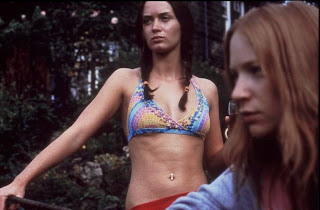




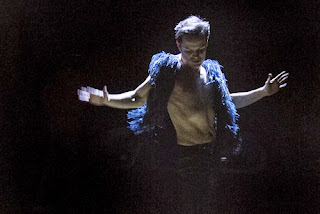
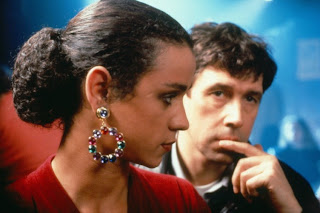

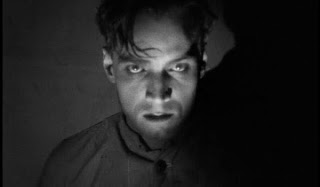






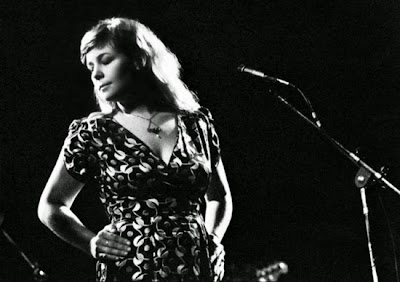


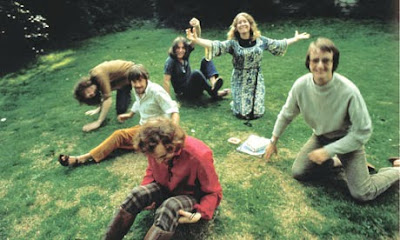


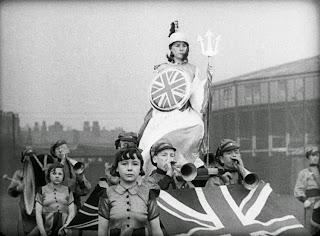







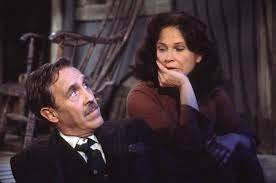





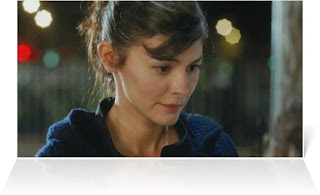



_01.jpg)

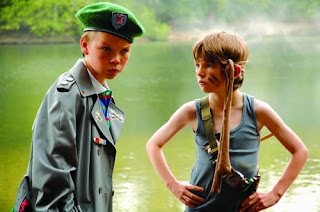

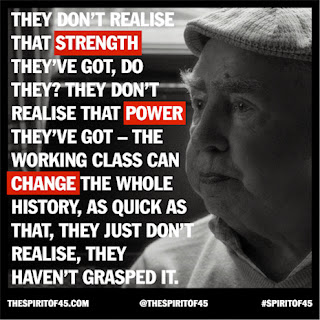
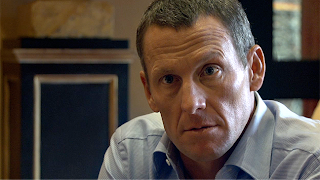

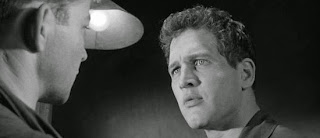
_05.jpg)


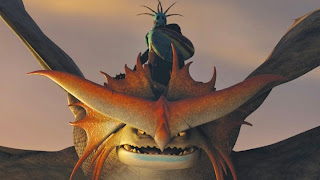































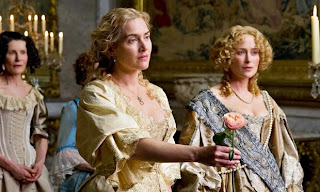

















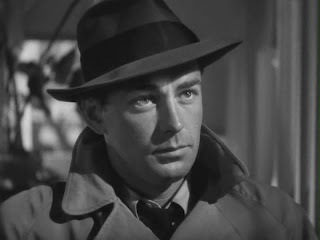






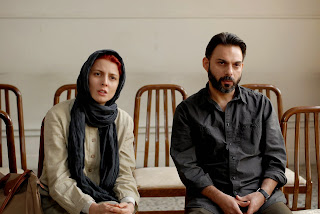







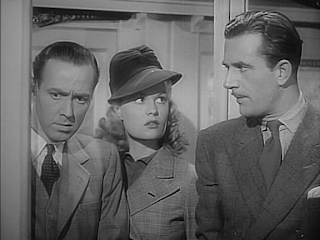











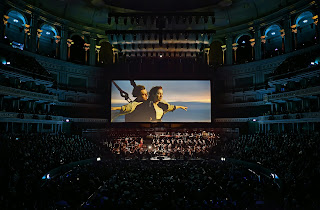.jpg)




